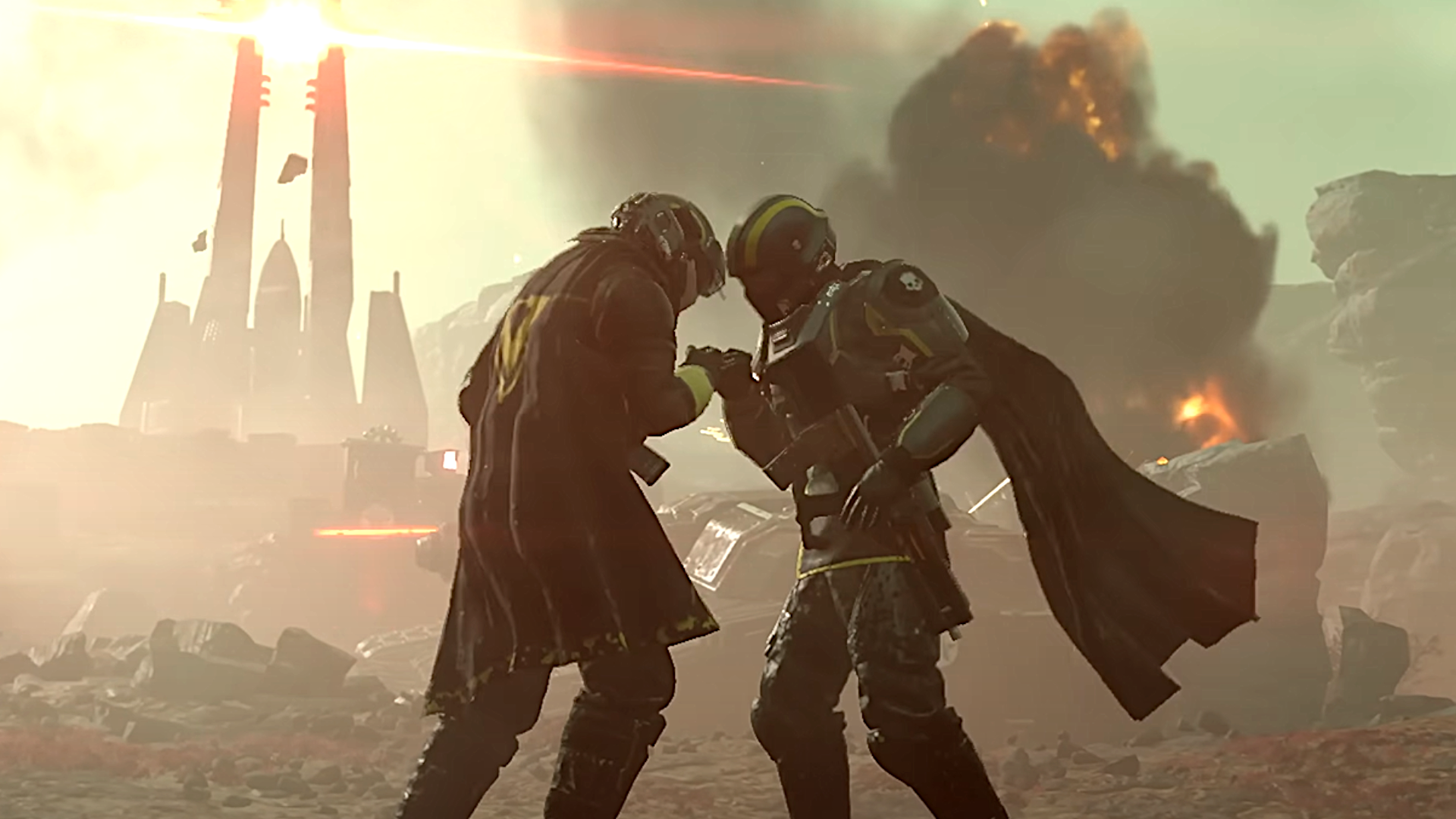Helldivers 2 uses its game master to stop the live service side from being 'just a calendar with automated events tied to major holidays'
"We knew it would be divisive!"

Helldivers 2 has landed in a big way and it just keeps getting bigger, to the extent that bewildered analysts are muttering about an "inverse decay curve" (meaning its sales are increasing over time). Partially because the game is just a total blast, but what's kept many of us coming back is the overarching structure of the galactic war. Every mission counts in the quest for liberty.
The galactic war is something that we understand the broad contours of, but Arrowhead's wisely kept vague about the specifics of how it's working. The most fascinating element of it can probably be summed up in one proper noun: Joel. The mythical game master was revealed to PCG in an interview last week, since when they've acquired meme status among the community. Bad mission? Blew up your mates? Goddamn it, Joel!
Joel's role is to react to player behaviour on the macro scale, set the Daily and Major orders that help direct the flow of traffic, and give the enemy forces some direction in the face of humanity's swarming heroes. When the Helldivers started to overwhelm a planet recently, for example, Joel cranked up the enemy resistance and things got a little hairy.
A community manager from developer Arrowhead has now spilled a few more beans on the idea behind the game master, and what the studio's hoping it will mean for the game.
"It's really intended to keep the game exciting and keep the never-ending war engaging for players," said Katherine 'Baskinator' Baskin on Discord (first spotted by GR+). "Helldivers 2 is going to run for a long time, we'd love to see it go for many years, and that means we need something more than just a calendar with automated events tied to major holidays. That's what I see in other live service games."
Kinda brutal, but there's no denying Baskin has a point: Plenty of great games reach that endgame grind, and then they're just flat out of ideas beyond seasonal events and themed cosmetics. It's not a structure that particularly grabs me, at least. The game master role ties in with Arrowhead's general approach to Helldivers 2 which, beyond dealing with the technical problems that come with success, seems to be a little more fluid than your typical set schedule of announcements and updates.
"Most live service games have something like a game master, but it's a series of automated events," Baskin continues. "Buffs/debuffs/events are activated automatically according to some schedule... instead of what we're doing here, which is a person who can analyze the campaign as it's happening and make more sensitive choices. We knew it would be divisive! But we hope overall that people enjoy it."
The biggest gaming news, reviews and hardware deals
Keep up to date with the most important stories and the best deals, as picked by the PC Gamer team.
Just in case anyone was getting a case of the warm fuzzies thinking about Joel making sensitive choices for our benefit, Baskin then added that he was "watching it all go down" as over 10 million Helldivers died on a single planet (for glorious victory, of course) and the collective sacrifice was "a thing of beauty." Oh I bet it was Joel, and no comment on how many deaths I contributed to that whopping total.
Helldivers 2's wider structure definitely feels like the special sauce that's elevating an already great game to exceptional heights, and even though I'm objectively a terrible Helldiver this is some of the most fun I've had in co-op in many a year. There's something special about waking up to the news that more allied turf has been lost because, of course, bugs and bots don't sleep. The game's also just brought back daily orders, is gearing up to add mechs and, with Arrowhead's commitment to letting players help shape the story, the future is looking very bright for managed democracy.

Rich is a games journalist with 15 years' experience, beginning his career on Edge magazine before working for a wide range of outlets, including Ars Technica, Eurogamer, GamesRadar+, Gamespot, the Guardian, IGN, the New Statesman, Polygon, and Vice. He was the editor of Kotaku UK, the UK arm of Kotaku, for three years before joining PC Gamer. He is the author of a Brief History of Video Games, a full history of the medium, which the Midwest Book Review described as "[a] must-read for serious minded game historians and curious video game connoisseurs alike."

